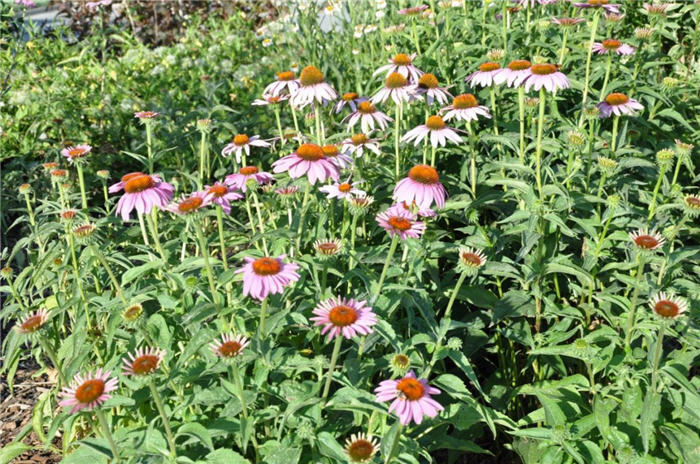| Botanical Name: Echinacea purpurea 'Magnus' | |
| Common Name: Magnus Coneflower |

-
Anatomy
-
Culture
-
Design
Plant Type
Perennial
Height Range
1-3'
Flower Color
Pink
Flower Season
Summer
Leaf Color
Green
Bark Color
n/a
Fruit Color
n/a
Fruit Season
n/a
Sun
Full
Water
Medium
Growth Rate
Moderate
Soil Type
Sandy, Clay, Loam, Rocky, Unparticular
Soil Condition
Average, Rich, Poor, Well-drained
Soil pH
Acid, Neutral
Adverse Factors
Invasive
Design Styles
English Cottage, Meadow, Ranch
Accenting Features
Showy Flowers
Seasonal Interest
Summer
Location Uses
Perennial Border, Shrub Border, Foundation, Patio, Walls / Fences
Special Uses
Cut Flowers, Mass Planting, Naturalizing, Small Spaces
Attracts Wildlife
Birds, Butterflies
Information by: Stephanie Duer
Photographer:
Photographer:
-
Description
-
Notes
'Magnus' is a cultivar of E. purpurea, and is selected for its bright reddish pink petals that lay out flat, and don't recurve as is typical with most coneflower. Blooms mid to late summer. The plant stands about 3 to 4 feet tall and about 18 to 24 inches wide, with large, deep green leaves typical of the species. Great in perennial borders and as cut flowers, though the seed heads will attract birds and persist well into the winter, so its worth it to leave some on the plant.
Plant in compost enriched soil that is well drained. Will grow in sun to part shade. Flowers left to dry on the plant will produce seed that will be enjoyed by birds, and may reseed to create a lovely, natural-looking garden. Not terribly drought tolerant in our hot valley, but they would do well in a moderly watered garden, or in the bench areas.